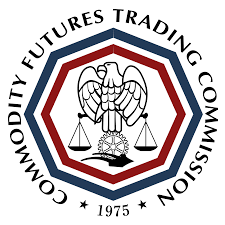 The Commodities Futures Trading Commission (CFTC) can charge a firm with violating spoofing related statutes even if no spoofing occurred.
The Commodities Futures Trading Commission (CFTC) can charge a firm with violating spoofing related statutes even if no spoofing occurred.
The Futures Industry Association held its latest webinar entitled: “Spoofing, Surveillance, & Supervision.”
Attorneys from the law firm Drinker Biddle & Reath LLP made the presentation and noted that CFTC’s statute states that a firm can be charged with a spoofing violation if the firm did not properly supervise its traders, even if none engaged in spoofing.
The CFTC rule states, “Evidence of violations that ‘should be detected by a diligent system of supervision, either because of the nature of the violations or because the violations have occurred repeatedly’ is probative of a failure to supervise,” according to a slide in the webinar.
The rule departs from that of the Securities and Exchange Commission (SEC), which requires spoofing to occur before a firm can also be charged with a failure to supervise.
“Unlike the SEC’s rule on failure to supervise, which requires an underlying substantive violation in order to establish a failure to supervise,” the slide continued.
Spoofing occurs when a trader places orders which are not executed but are placed simply to drive the price of a security in a certain direction.
The anti-spoofing statute was part of the Dodd/Frank bill passed in 2010.
Furthermore, the exchanges followed with their own anti-spoofing rules, which the attorneys said largely mirrored that of the CFTC’s anti-spoofing statute.
The CME rule states, “Prohibits (among other actions) entering an order with the intent at the time of order entry, to cancel the order before execution or to modify the order to avoid execution,” according to another slide.
The ICE exchange “does not require the intent at the time of order entry only entering an order with the intent to cancel it,” according to the same slide.
The exchanges, the CME, ICE, and others, are also referred to as self-regulatory organizations (SRO).
This is because it is required by the SEC and the CFTC that all approved exchanges have a separate regulatory arm.
As such, a trader engaged in spoofing can face penalties not only from the exchange where the trades occurred but also with the regulatory body.
This occurred with 3 Red Trading, which was covered in the webinar.
Their principal, Igor Oystacher, was not only fined by the CME but also by the CFTC, for his spoofing activities.
The attorneys also noted that the CFTC has been touting their non-prosecution agreements, as a means of encouraging traders involved in spoofing to come forward and expose their firms.
For instance, in July 2017, the CFTC entered into a non-prosecution agreement with three traders from Citigroup Global Markets; while the traders were named, they were spared punishment while the firm was fined $25 million.
“The message sent appears to perhaps incentivize traders being investigated for spoofing to point at their firm for failing to train and supervise them regarding spoofing.” Another slide noted.
While that is one way to look at it, this incentive can also be viewed as encouraging criminal behavior.
Law enforcement has a long history of making deals with criminals whose crimes are forgiven for their cooperation against another criminal.
In one notorious case, Sammy “The Bull” Gravano served only five years in jail despite admitting to involvement in nineteen murders in exchange for testifying against John Gotti.
While spoofing is not nearly as serious as murders, traders who rat on their firms in exchange for leniency do have their criminal activity wiped out as well.









